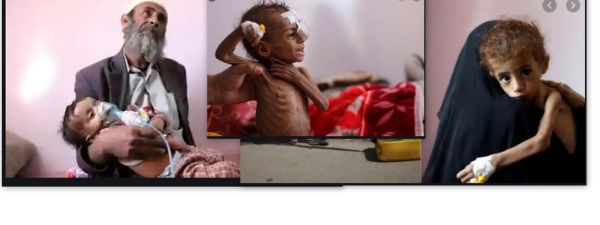The International Rescue Committee (IRC) has warned that Yemen is the country most at risk of a humanitarian catastrophe in 2021, marking the third year running the war-ravaged nation has earned a grim recognition.
Continued conflict, widespread hunger, and a collapsing international aid response threaten to dramatically worsen the current crisis in Yemen next year, the IRC said.
Tamuna Sabadze, the aid agency’s director for Yemen, said that support was critical, now more “than ever”.
In an interview with Al Jazeera from the capital, Sanaa, she has called for “more commitment than we see today” from internal, regional and global actors to end the conflict.
The IRC had stated that without international involvement, things will not change in Yemen & the ordinary civilians of Yemen will really have no future and no hope.
Twenty-four million people are in need of some kind of humanitarian aid, be it food, protection, health services, or education. “The majority of the country really needs the UN and humanitarian funding in order to meet their basic day-to-day needs.”
The IRC’s watchlist for 2021, ranked from one to 10, comprised: Yemen; Afghanistan; Syria; the Democratic Republic of the Congo; Ethiopia; Burkina Faso; South Sudan; Nigeria; Venezuela and Mozambique. A further 10 countries were also on the list but were unranked in terms of gravity: Cameroon; the Central African Republic; Chad; Colombia; Lebanon; Mali; Niger; Palestine; Somalia and Sudan.
Abeer Fowzi, IRC’s deputy nutrition coordinator, said, “In the face of an unprecedented threat, the world has turned its back on Yemen. Never before have had Yemenis faced so little support from the international community or so many simultaneous challenges.”
Financial support for the country is drying up, with UN humanitarian chief Mark Lowcock warning in November that Yemen had received less than half of the emergency funds it needed this year.
Lowcock told the UN Security Council that the 2020 appeal for Yemen had received only about $1.5bn in donations to date, some 45 percent of the $3.4bn required. By this time last year it had received almost $3bn, he said. According to the UN, 80 percent of Yemen’s 30 million people need some form of aid or protection.
UN data shows that about 13.5 million Yemenis currently face acute food insecurity, including 16,500 people living in famine-like conditions.
In 2014, the Iran-aligned Houthi rebel group seized large swaths of the country, including Sanaa. The war escalated in March 2015, when a Saudi Arabia-led military coalition intervened in an attempt to restore the government of Riyadh-backed President Abd-Rabbu Mansour Hadi.
The coalition has been assisted by several Western powers, including the United States. Both sides have since been accused of war crimes during fighting that has killed more than 100,000 people to date, according to the Armed Conflict Location and Event Data project.
Peace talks aimed at resolving the conflict have been stalled since late 2018, despite repeated efforts by UN officials to revive negotiations and end what it calls the world’s largest humanitarian crisis.
(Source: Al-Jazeera News)





